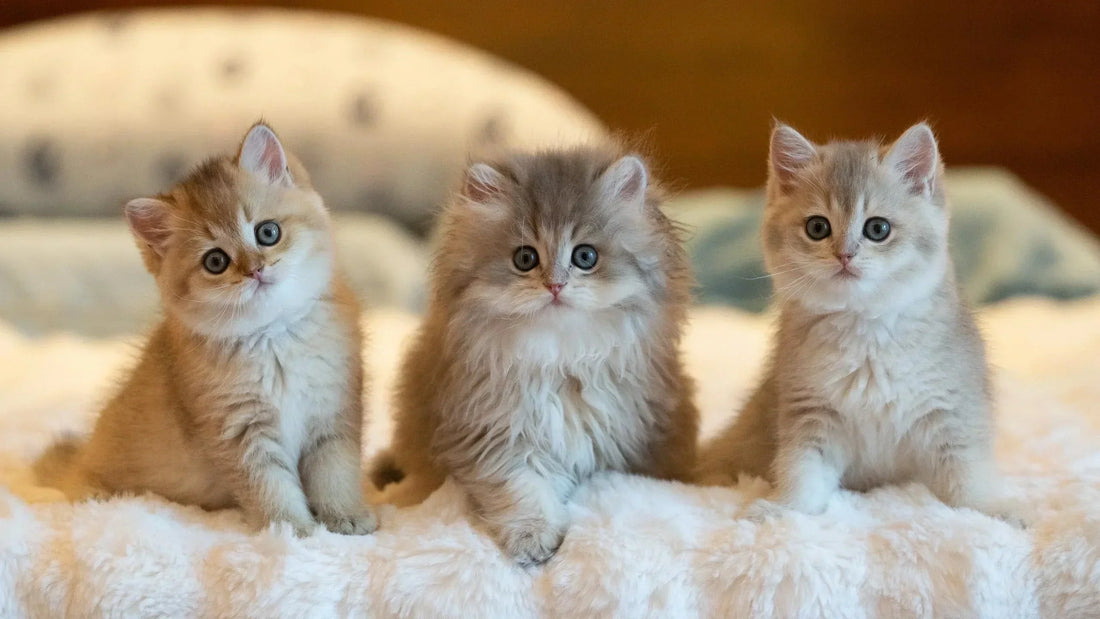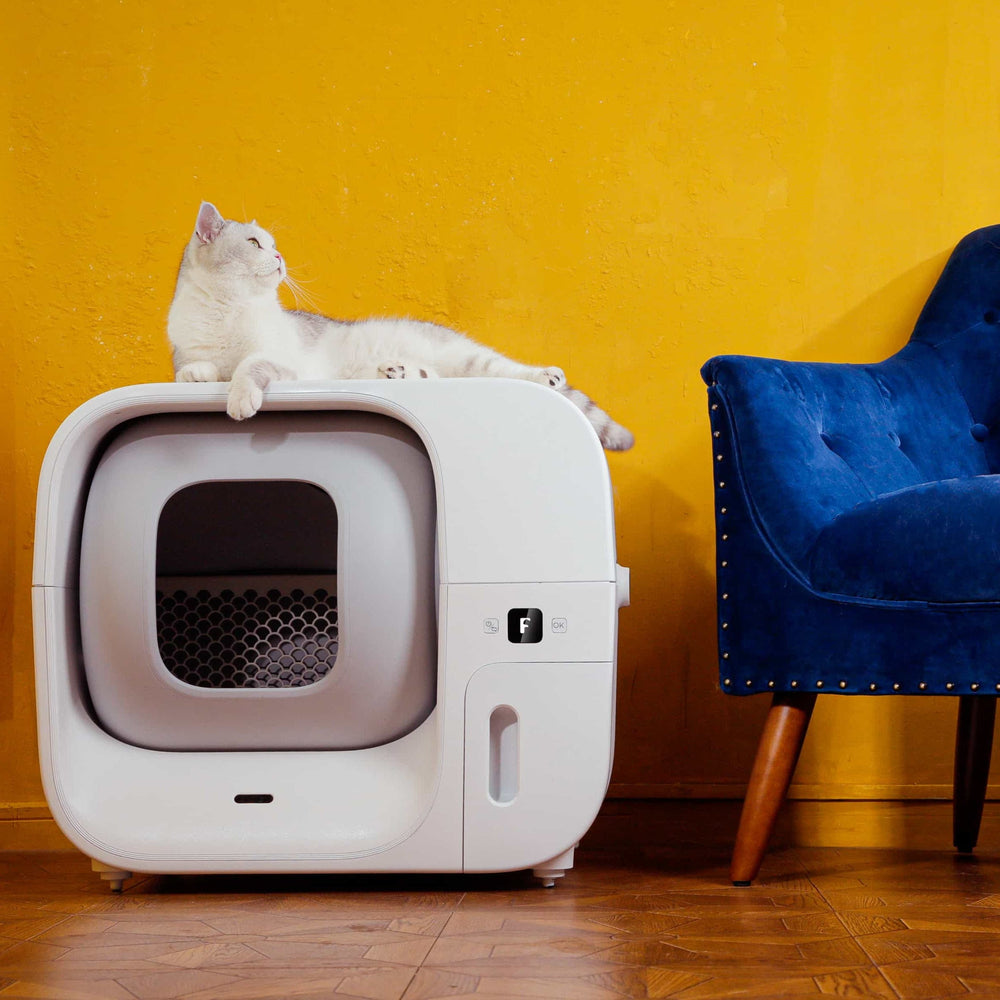How Long Do Cats Live?

Each cat owner grapples with the question "how long do cats live" at some point during ownership. We often watch our feline companions transition from playful kittens into independent adults; as pet lovers we marvel at them growing from playful kittens into independent individuals; yet no matter our love of our felines companions the question "How many years will we spend together" eventually arises. Unfortunately the answer to that is never simple and can range anywhere between 12-16 years, depending on a variety of factors like breed, genetics and lifestyle; in locations like Dubai where extreme environmental conditions exist even climate has unexpected impacts that influence health and lifespan - as we adore our felines friends dearly!
Understanding A Cat's Lifespan
Cat lifespans are determined by an intricate web of interdependent factors: genetics, diet, health care needs and lifestyle decisions all play their parts. Each cat's story differs, much like that of their owners' stories are never exactly alike.
Genetics: Taking A Peek into Our Future
Some breeds are known for their longevity and genetics plays an essential part in predicting their life spans. Siamese, Maine Coon and Burmese cats in particular often outlive other breeds - sometimes reaching 20 years or beyond! But genetic conditions could shorten life even further: such as having heart disease predispositions, kidney issues or diabetes that shorten lives prematurely.
But, unlike with humans, cats differ considerably when it comes to genetic makeup and individual temperament. Much like humans, some cats may simply inherit more robust constitutions while others could experience early health challenges from inherited factors. While it is impossible to accurately forecast future outcomes with 100% certainty, knowing more about your cat's breed and parents can give a clearer idea of their path forward.
Indoor vs Outdoor Cats: A Complex Decision
Debates over whether cats should live indoors or freely roam outdoors is ongoing; but when it comes to longevity, the choice can be significant. Indoor cats tend to live longer than outdoor ones with average lifespans ranging between 12-16 years whereas outdoors cats generally reach 7-10.
Outdoor cats face many risks: traffic accidents, encounters with wild animals, disease exposure and accidents are just the tip of the iceberg. While some might argue that outdoor cats experience more fulfilling lives due to being free to roam and hunt on their own terms, harsh realities of everyday life often increase injury or premature death risks significantly.
Indoor cats lead a safer existence. No longer exposed to the hazards of the outside world and less stressed-out, their lives tend to be far less hectic and stressful. Being shielded from traffic or predators gives these indoor felines a greater chance of reaching old age without suffering, potentially increasing lifespan by many years.
Diet and Health Care Are Vital Pillars of Longevity
An appropriate diet and ongoing medical attention are integral parts of long-term cat health and welfare. A nutritious, appropriate diet ensures cats receive enough essential vitamins and nutrients needed for strong body functioning as well as protection from obesity, diabetes and kidney diseases - while overfeeding or poor food choices could quickly become health hazards that shorten a cat's lifespan significantly.
Proper veterinary care for cats is equally essential. Routine check-ups enable early identification and treatment of health conditions like dental disease, kidney failure or cardiovascular conditions which, left untreated, could significantly shorten their lives. Regular vaccinations, parasite control measures and spaying/neutering play an integral part in prolonging a cat's existence and ensure they live long in optimal health.
Stress and Environmental Factors as Life-Creepers
Environment can have a substantial impact on how long and healthy a cat's life will be. Cats are sensitive creatures that thrive when provided with adequate physical and mental stimulation, including toys for physical exercise as well as entertainment from playing outside or indoor games with toys for cognitive stimulation. Stressful events, like moving house or adding new pets can significantly disrupt cat lives; to minimize any sources of anxiety it's essential that any possible sources are eliminated such as moving homes.
Climates like that found in the UAE present additional environmental obstacles for cats. Sweltering desert heat combined with high humidity levels may place an undue strain on health; dehydration or heatstroke could result; existing medical issues could become exacerbated further - essential elements to provide for your cat's wellbeing in such extreme climates are adequate cooling, hydration and shade provision.
As temperatures in the UAE regularly reach temperatures exceeding 40degC (104degF), indoor cats tend to be the safer option in summer temperatures that often reach 40degC (104degF). Such extreme heat could prove lethal to cats with long fur coats or preexisting health issues; outdoor cats must always have access to shaded spaces with fresh water nearby for cooling purposes and water for drinking purposes.
United Arab Emirates Climate's Influence on Cat Lifespan
UAE climate can significantly shorten outdoor cats' lives, while indoor cats may even suffer health consequences related to environmental exposures. Cats in these regions are especially prone to heatstroke which could prove fatal if not managed promptly; additionally, high temperatures could also result in dehydration and kidney disease, particularly among older cats or those already dealing with preexisting health issues.
Indoor cats generally face less challenging environmental circumstances; however, air conditioning--a standard feature in UAE homes--can pose its own set of hazards. While it helps cool indoor spaces down more effectively than ever before, its drying effects could leave your cat vulnerable to respiratory conditions or dehydration without regular access to clean drinking water; so making sure he/she remains well hydrated at all times is a crucial aspect in such climates.
Extending Your Cat's Lifespan: Strategies for Long-Term Wellness
Though your cat's lifespan depends on a number of unpredictable factors, there are steps that you can take to increase its potential lifespan and ensure they live out a full and happy existence.
- 1. Offer A Balanced Diet: Make sure your cat's food contains essential vitamins and nutrients tailored specifically for its age and health status.
- 2. Conduct Regular Vet Check-Ups: Regular checkups can detect issues early and help ward off serious health concerns in the future.
- 3. Create a Stress-Free Environment: Eliminate sources of anxiety by providing enough space, mental stimulation and affection.
- 4. Monitor Their Activity Levels: Encourage play time and exercise sessions as ways of maintaining an appropriate weight while keeping cats active and engaged with life.
- 5. Take into Account Climate: For cats living in hot climates like UAE, ensure they receive plenty of shade and water when outdoors or consider keeping them inside for protection from heatstroke.
Closing Thoughts on Cat Lifespan Mysteries: Unraveling the Myth
What is the lifespan of cats? That depends on various factors; while an estimated lifespan for felines ranges between 12-16 years on average. But many other variables, including breed, environment, health and lifestyle choices can have an effect on this average number. Furthermore, climate can add another level of complexity; extreme temperatures have the ability to have adverse consequences on cat health and lifespan.
No matter whether a cat lives for 10 or 20 years, what matters is the time you share together. By giving the best care possible and meeting their health needs as best you can, you can ensure they live a long and rewarding life no matter their physical location.

